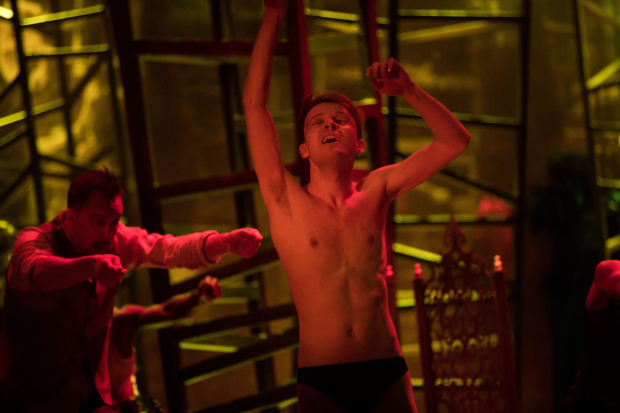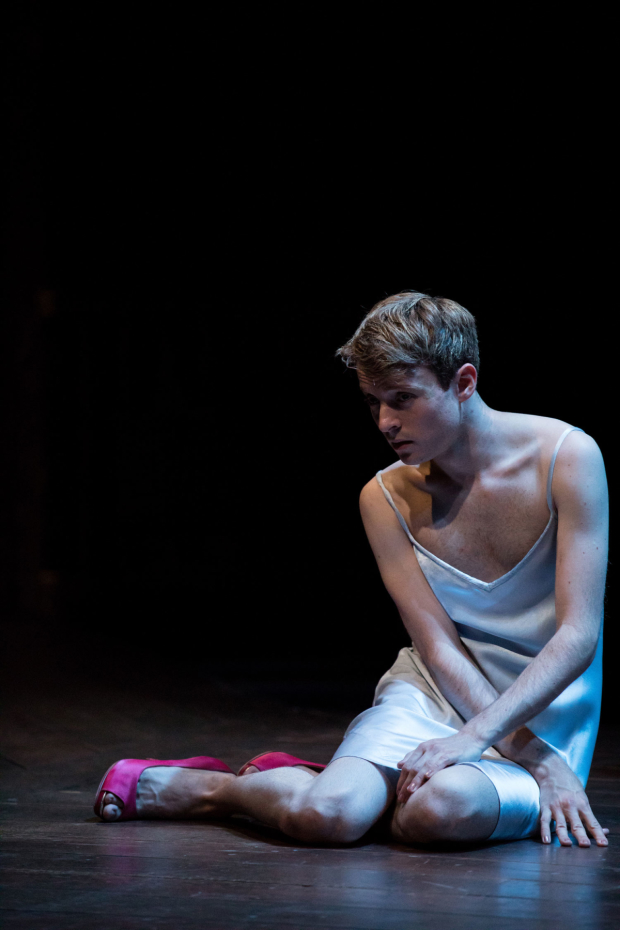Matthew Tennyson: 'I hope gender fluid casting is the future of theatre'

© Isaac James
When you first went up for the role of Salomé, were you surprised that they were looking for a man?
I don't think I was surprised, I think I was just very excited. The idea was to mark the 50th anniversary of the decriminalisation of homosexuality in England and Wales, and I thought it was a great idea. I fell in love with the play and the role. It's so rare to get the chance to do something that's so bold and intense as this play. Oscar Wilde has a really pure and profound understanding of people and the way that we protect themselves. Their vulnerability and all the things going on underneath.
How would you describe the play?
It's about Salomé, who falls in love and does the dance of the seven veils for her step-father Herod. He says she can have anything she wants and she asks for the head of Jokanaan on a silver platter. But really, any blow by blow account diminishes the play. It's a love story. Wilde has captured the feeling of love. I think it's a really misunderstood love story. It's also a tragedy.
So you play Salomé, does that mean the character is male in your production?
I am playing it as a woman. The director Owen Horsley has kept all the gender pronouns in the script. Salomé identifies as a woman and any ambiguity or complexity is there for the audience to make their own sense of.
Have the genders of any other characters changed in the piece?
No. It's a play about desire and unfulfilled desire. Wilde was writing it as a gay man – he was in prison for being gay. So I think Owen felt it was important to look at the play through a gay lens, to celebrate Oscar Wilde's legacy, but also to look at how far we've come. There are a lot of conversations at the moment around gender identity and I think that's where his decision to cast a man as Salomé came from. He wanted to explore the anger and confusion that's created when a man refuses to be confined to traditional roles of male and female. It's a very male world in Herod's court.

© Isaac James
So how does that change the character of Salomé?
I am playing it very directly. And as simply as possible. I am not really sure how having a man playing it changes the role. I really hope there are things in it that provoke. But for me it's just about playing it as truthfully as possible. The responses to the character of Salomé are fascinating though. She's described as a temptress, a sorceress and someone described her as a b**ch to me. I have never felt that way about her.
How do you perceive the character?
It's a play about someone's sexual awakening. For the first time in her life, Salomé is in touch with a desire that's primal. I think she realises that she's tapped into something that's universally human and truthful and she follows the gut feeling. She can't help it.
Do you think the move to cast more fluidly is a good one?
Yes I think it's positive. I really do think that casting for both men and women shouldn't be limited by gender. Theatre isn't a naturalisitc artform. We all know it's not real. It's about people and people are complex and as such, casting should be about the actors' essence, their intelligence and their power and vulnerability. I think that's the future of theatre and I hope it's the future for the world at large.
Salomé runs at the Swan Theatre, Stratford-upon-Avon until 6 September.











